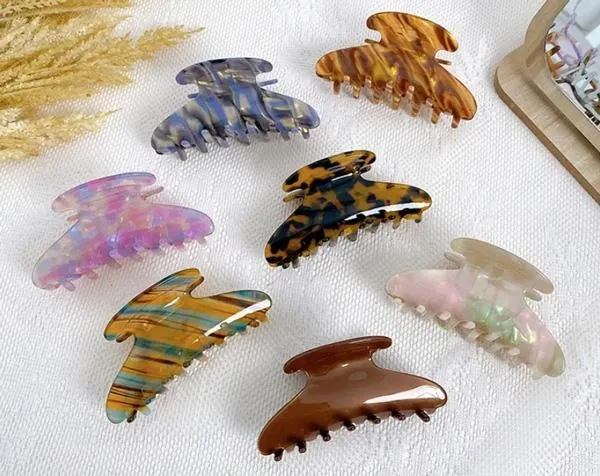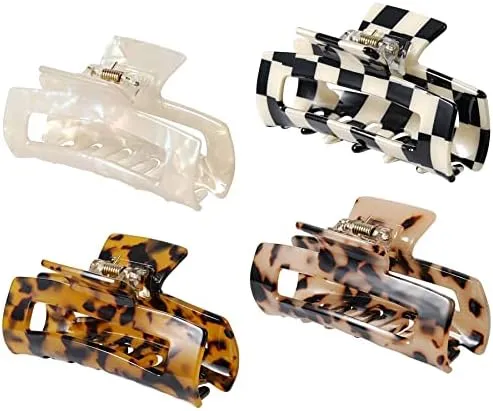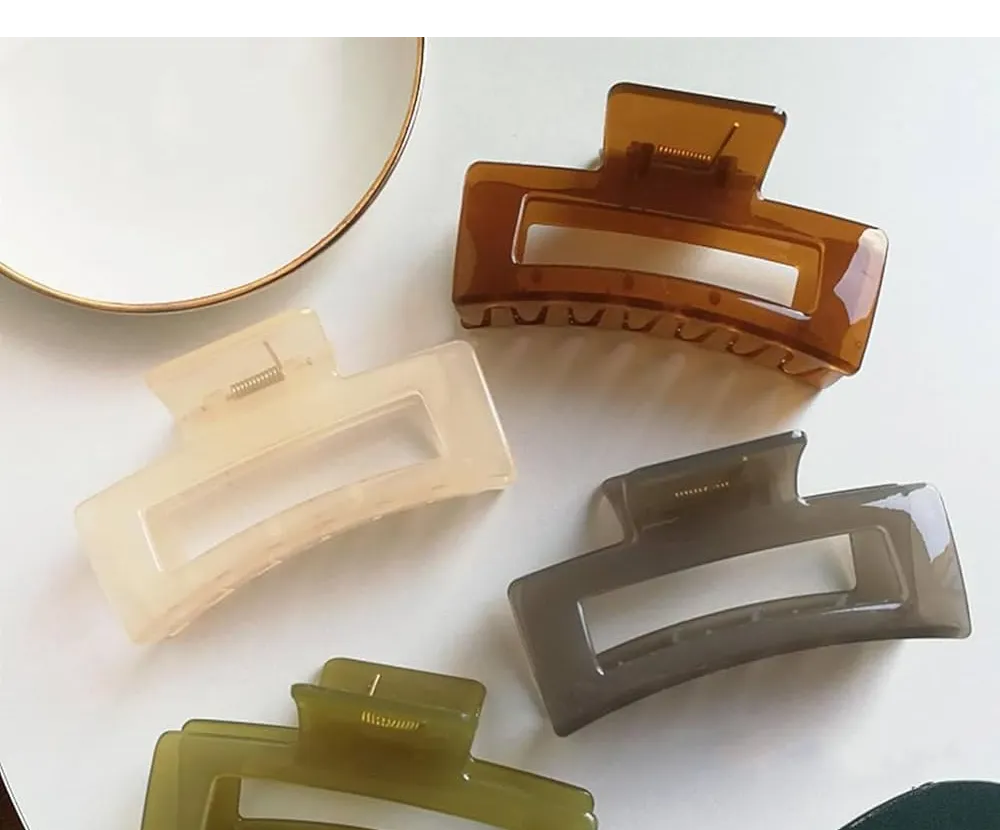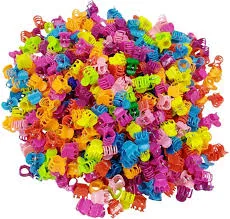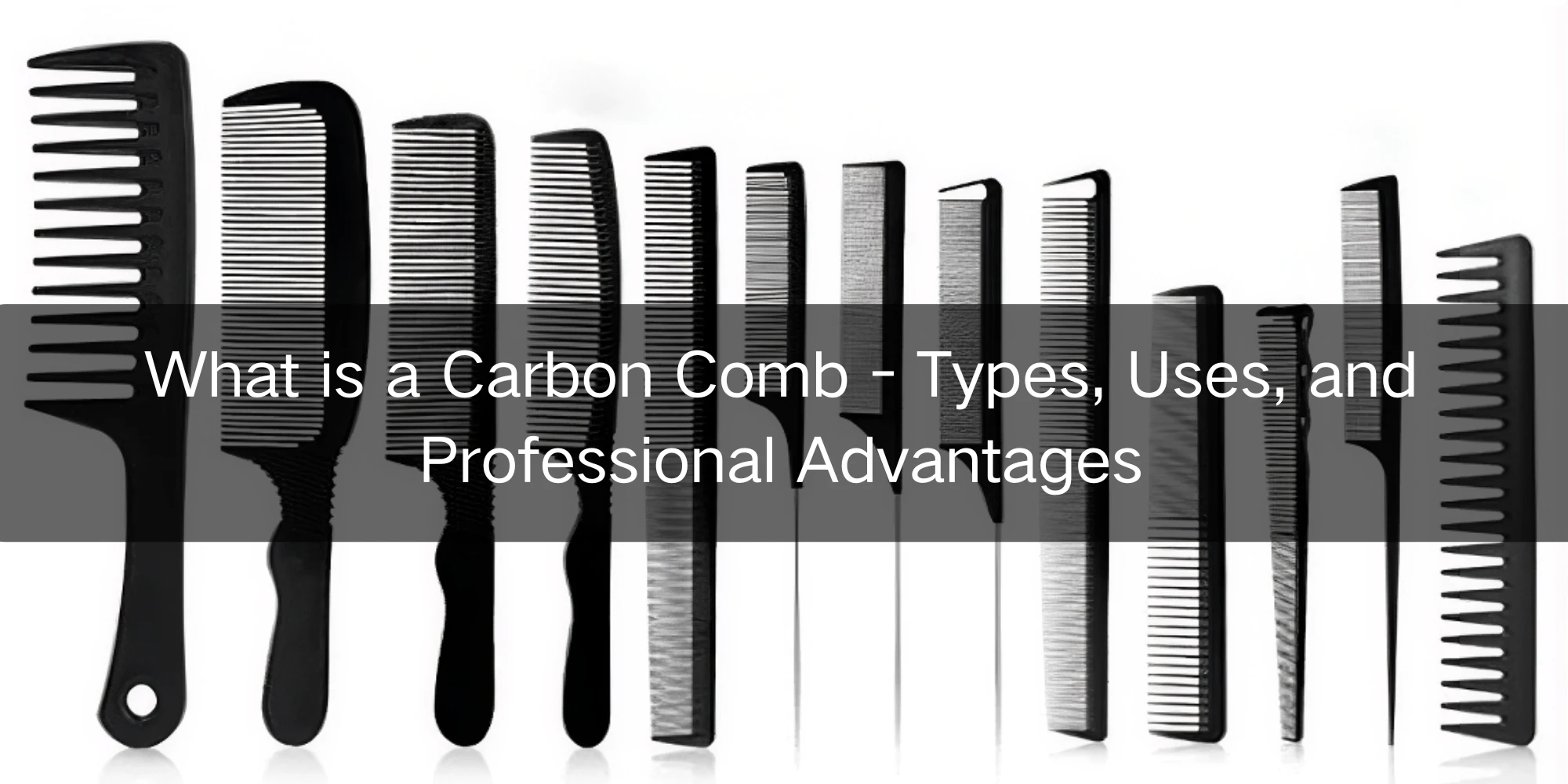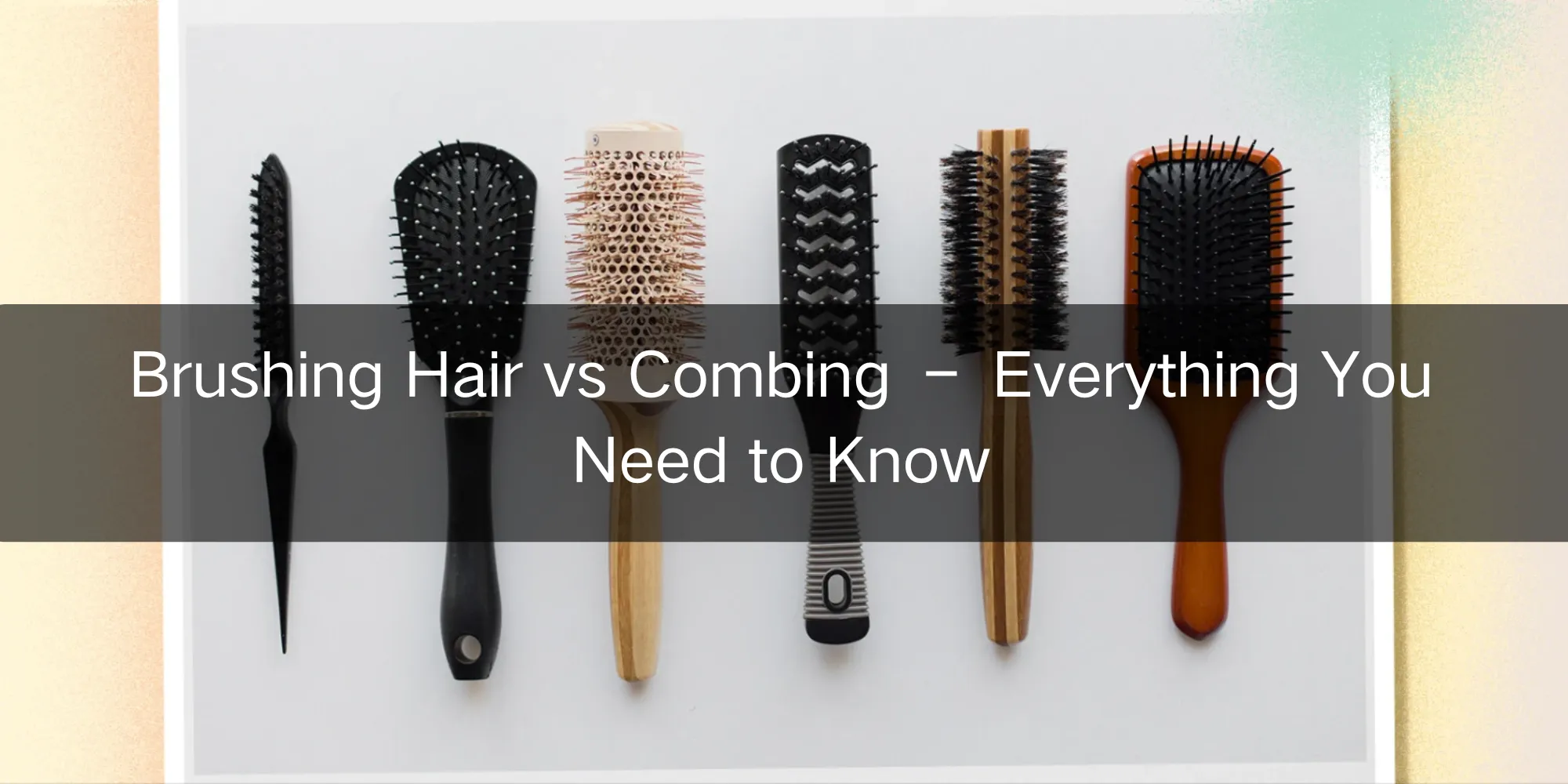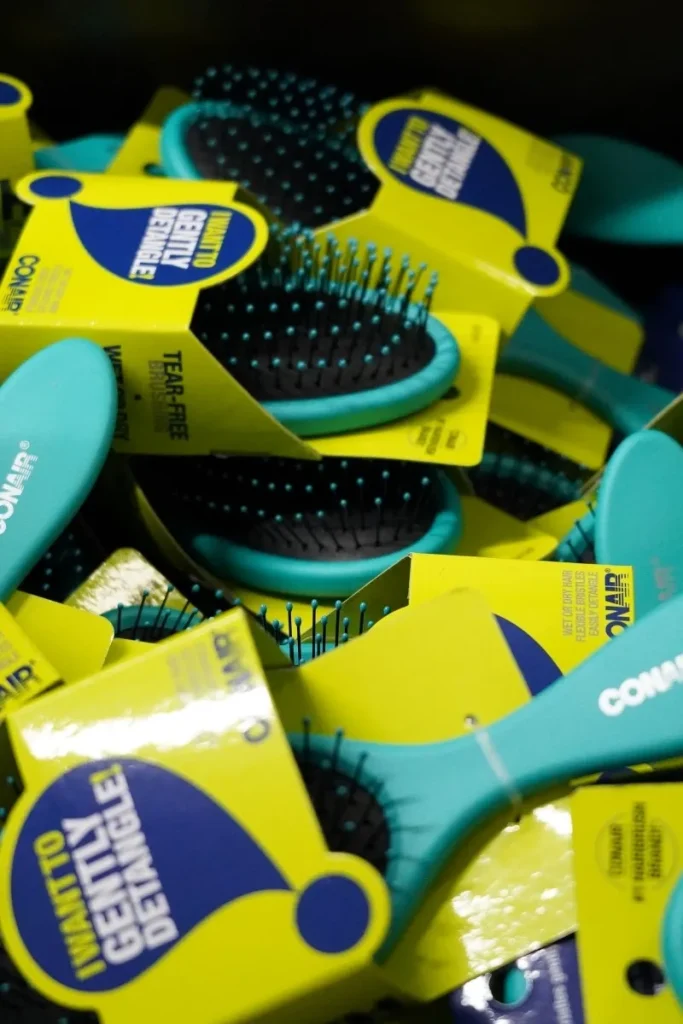Like many accessories, hair clips are vital for styling and organizing hair but not all of them can perform the same way. Two common choices, acetate and plastic hair clips serve their purposes well but have different basic benefits. Acetate clips are pretty strong, elegant, and eco-friendly while plastic clips are easily accessible and versatile.
So, knowing acetate vs plastic hair clips can assist you in selecting the most appropriate one that corresponds with your hair’s type, style requirements, and sustainability objectives. Let’s figure out which one is the best for you!
1) Material Composition: Acetate vs plastic hair clips
Like many accessories, hair clips are vital for styling and organizing hair but not all of them can perform the same way. Two common choices, acetate and plastic hair clips serve their purposes well but have different basic benefits. Acetate clips are pretty strong, elegant, and eco-friendly while plastic clips are easily accessible and versatile.
So, knowing acetate vs plastic hair clips can assist you in selecting the most appropriate one that corresponds with your hair’s type, style requirements, and sustainability objectives. Let’s figure out which one is the best for you!
Plastic clips are made using petroleum-based products, are melted down along with other components, and are fixed into a pellet-shaped mold. After that, they are painted or decorated. They can be used by most, if not all people, although they don’t have the best of smoothness and durability when compared to the clip made from acetate.
2) Grip Strength: Which One Holds Better?
Due to the solid construction of acetate clips, they outperform their competition when it comes to hold. Additionally, unlike other competitors, these clips have precisely molded teeth. This means that the clips can remain in place due to their highly strong springs.
While, plastic clips have some concerns about subpar spring quality, inaccurate fittings, and looming gripless. Thus, due to a loss of efficacy over an extended period of time, their gripping strength becomes dangerously low. Their detachment goes through the roof, especially in thicker, more silky hair.
3) Moisture & Frizz: Does It Make a Difference?
With the finest quality, acetate is able to achieve a finish that helps reduce over-pulling. Additionally, its firm grip keeps the hair in place and prevents tangling and unpredictable movements throughout the day.
In contrast, plastic clips are not as good as they have somewhat rough edges and weak springs. All of this leads to higher chances of damage, dryness, and frizz.
4) Static Electricity: Which one Generates Less Static?
Thanks to their plant-based composition, acetates have been proven to generate lesser amounts of static electricity. With a smooth texture, they are able to effortlessly glide through hair while minimizing static build-up.
On the other end of the spectrum, plastic clips drastically contribute to friction which leads to an inexplicable amount of static electricity and transforms hair into flyaway. In turn, this makes the hair harder to manage.
Figure no 4 Plastic hair clips produce static electricity
5) Durability: Which Clips Last Longer?
Everyone knows that acetates have a reputation for being extremely long-lasting. With their strong composition, there is no chance of them fading or breaking while keeping their shape and color for extended periods.
Immediately, on the other hand, plastic clips do wear out stronger and faster. With their loss of tension, fading, and breaking under pressure, they become constantly necessitate replacements.
6) Scalp Sensitivity: Which Is More Comfortable?
Sensitive scalp individuals probably have a better time with acetate clips because of the polish, seam, and construction. The smooth design prevents irritation and discomfort during wear.
There is a risk for irritation or scratching with plastic clips, especially those with rough edges or chemical plastic additives, and that risk only heightens for sensitive skin individuals.
7) Environmental Impact: Which Option Is Greener?
There are some eco-friendly advantages to acetate clips, such as them being derived from renewable resources like wood pulp. Acetic acid and other constituents used in manufacturing have a lower ecological impact than petroleum-based plastic. Under specific circumstances, certain types of acetate may biodegrade.
Plastic allows for the usage of certain fossil fuels, which, when depleted, provide no chance of replenishment. Like chrome, plastic takes centuries to decompose and severely pollutes the land. While some types of plastic do get recycled, hair clips, especially when made of plastic, do have a tendency to end up in landfills.
The raised cost of acetate clips, especially compared to other clip types, can be accounted for for many reasons:
● Material Origin: While acetate’s plant-based source would normally be considered sustainable, it possesses a high expenditure during the manufacturing stage compared to plastic.
● Production Complexity: The manufacturing process involves complicated steps like precise cutting, molding, and polishing.
● Luxury branding: Acetate clips are usually of premium quality, obviously brings its price up, which will have an adverse impact on the final cost if materials are branded as expensive.
➔ Choose acetate clips if you;
● Prefer a long-lasting, durable hair clip.
● Have sensitive skin or delicate hair.
● Are environmentally conscious.
● Appreciate a sophisticated, polished appearance
➔ Choose plastic clips if you;
● Want a variety of styles and colors
● Need a budget-friendly option.
● Prioritize affordability over longevity.
Additional Considerations
a) Maintenance:
● Plastic: Should be washed using a gentle soap and water, and check hinges for cracks.
● Acetate: This should be wiped clean with a soft cloth without the usage of harsh chemicals or heat.
b) Aesthetic Preferences
● Plastic: Better for basic and fun bright, colorful styles, as well as for more simple minimalistic products.
● Acetate: Better for classic elegant looks, applies to designs like tortoiseshell.
c) Usage Frequency
● Plastic clips may be optimal for occasional users.
● Daily users may benefit from the durability of Acetate.
d) Recycling & Disposal
● Acetate: May degrade in some conditions yet is not always guaranteed to do so.
● Plastic: Many small plastic accessories tend to be left in landfills, empty your local guidelines for recycling first.
10) Conclusion
When it comes to selecting a hair clip, it’s critical to recognize that it impacts hair health, comfort, and the surrounding environment. Plastic clips are affordable because of their low-quality materials, but unfortunately, they can damage the hair, as well as the environment. In comparison, acetate clips are more durable and eco-friendly, although they’re also more expensive.
Ultimately, the decision will rest on your specific budget, hair type, preferred styling methods, and environmental considerations. Keep styling!

